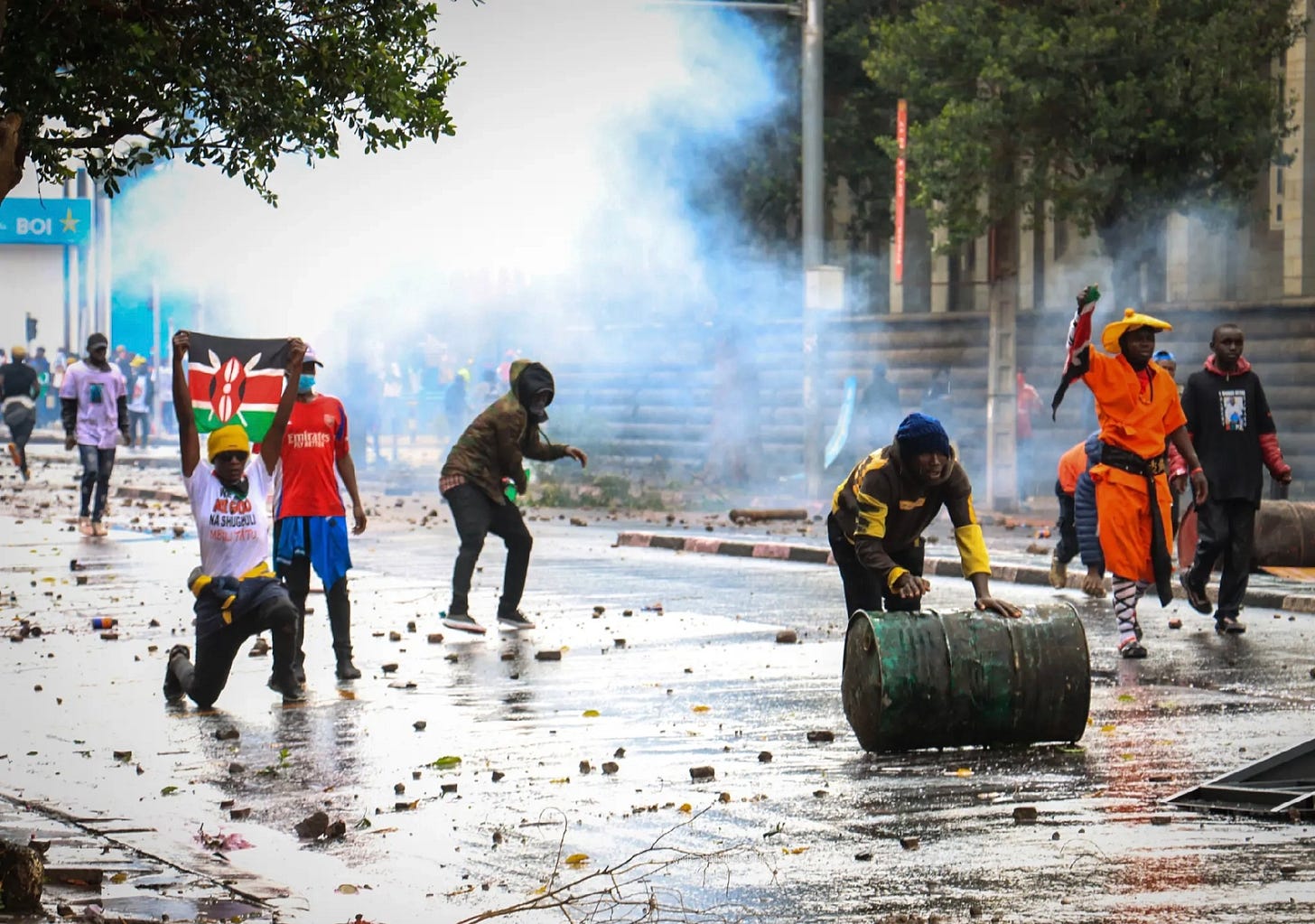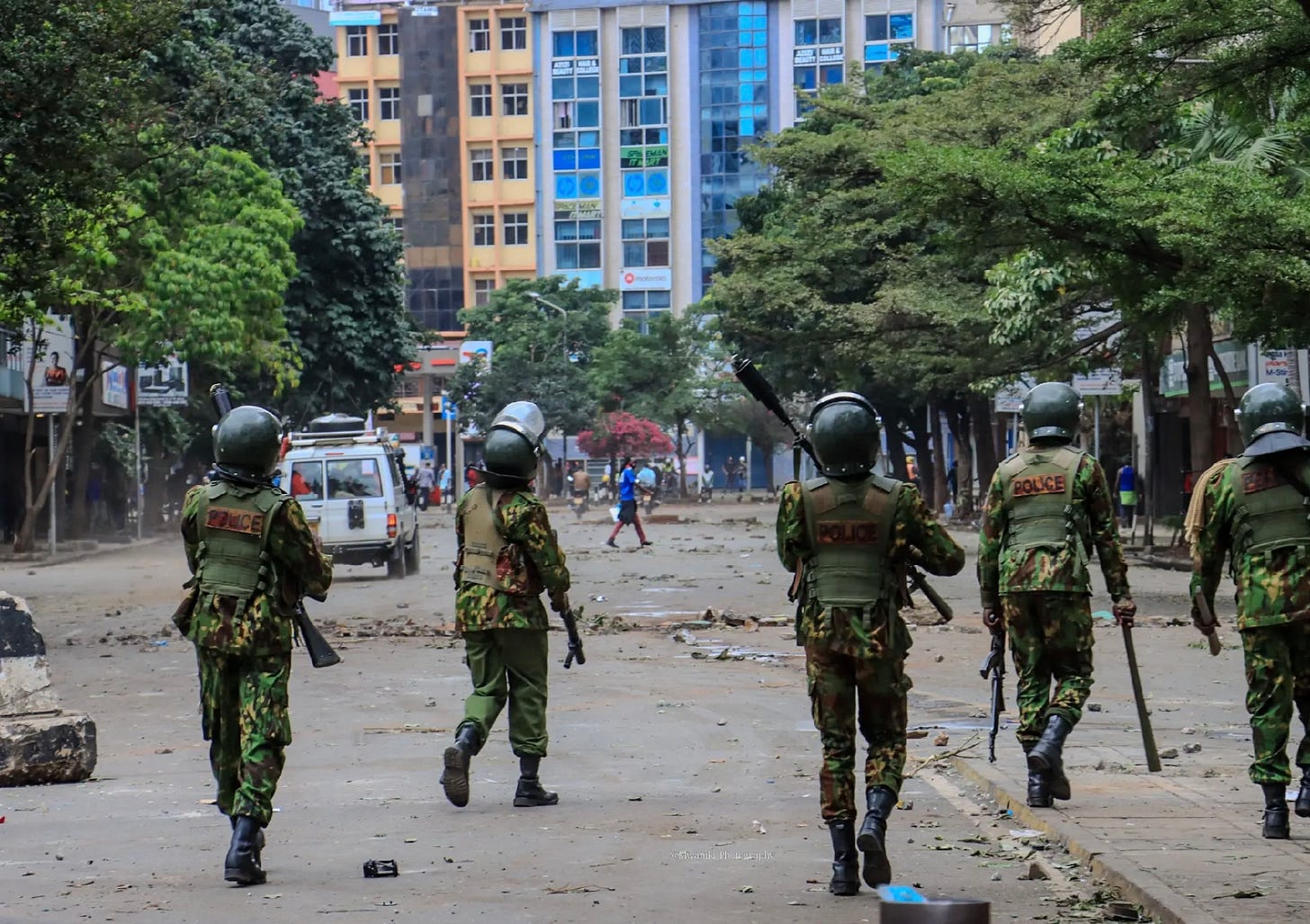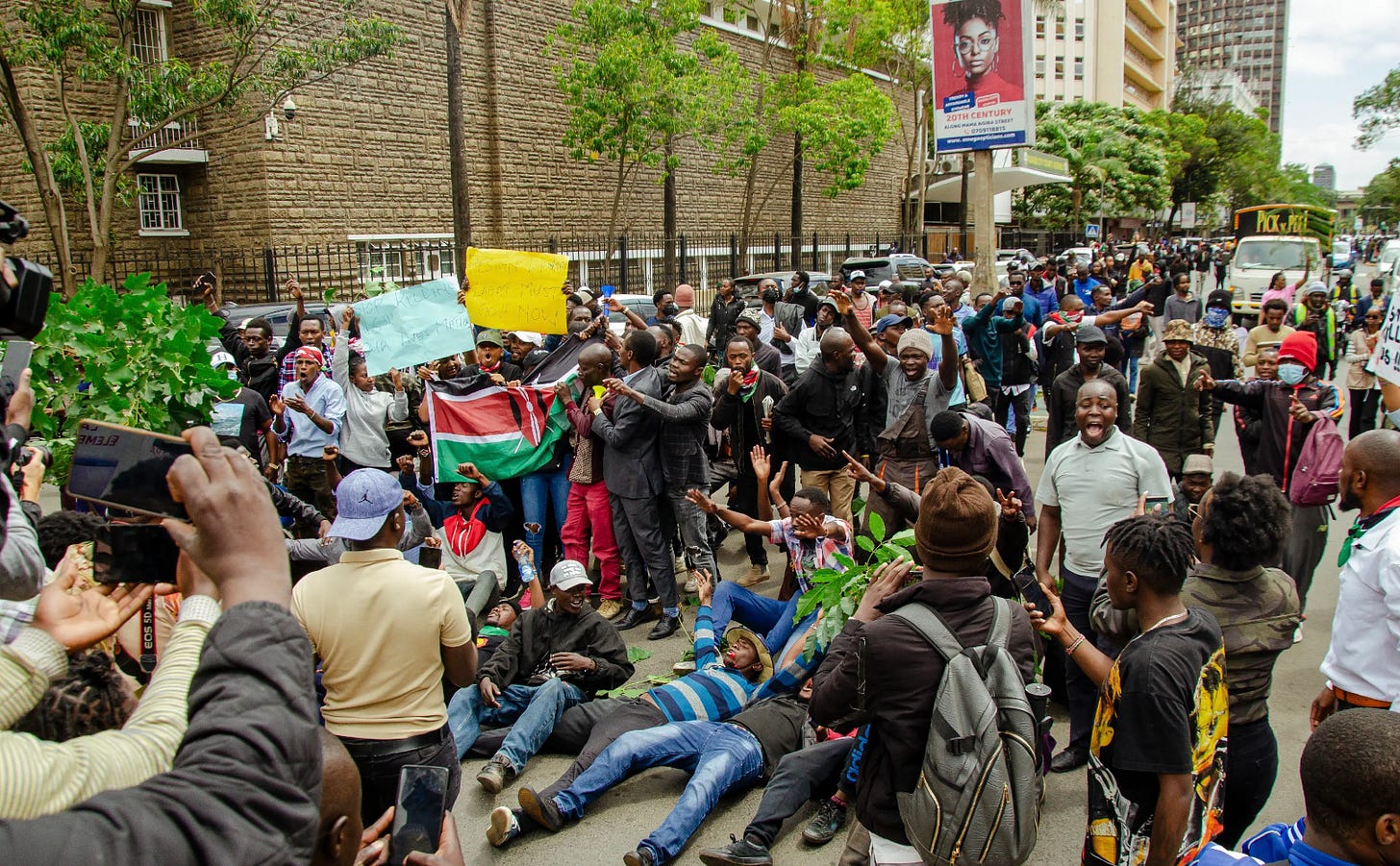Kenya’s Democratic Reckoning
A flame has been lit in Kenya by its Gen Z, and it is fast approaching the point of explosion.
This flame threatens to engulf the nation if President William Ruto continues to brutally suppress his own people from protesting against his government.
On an ordinary Saturday in early June, while having lunch with his wife, teacher and blogger Albert Ojwang was kidnapped by Kenyan police. The next day, 8 June 2025, his father found him dead at a police station in Nairobi.
This humble teacher’s tragic death became a catalyst for Kenya’s Gen Z, sparking protests that spread like wildfire across the country - culminating on 25 June 2025, exactly one year after the youth first rose up against the government. Heartbreakingly, the 2024 protests saw 60 people killed.
Kenyan youth stand up to their government. Source: Mwaniki Martin
Kenya’s Gen Z protests began in 2024 in response to the Finance Bill, which sought to increase taxes on ordinary citizens already burdened by high youth unemployment and a soaring cost of living. The movement continued into 2025 as the government introduced a new Finance Bill with similarly harsh proposals. The scale and duration of these protests are unmatched in Kenya’s recent history.
If I think about it, these protests feel familiar to me. They remind me of youth-led protests in South Africa - particularly the 2015 Fees Must Fall movement. Although the police brutality faced by South African students then was not on the scale we are seeing in Kenya now, the echoes are unmistakable.
Social justice activist Onyango Otieno, who participated in the June protests, in which almost 16 people were killed and 400 injured, told The Debrief Network that all Kenyans want is dignity.
“What you’re witnessing in the country today is not new. It is the continuation of a people’s cry for dignity - a cry that has echoed throughout the streets for over 30 years, since young Kenyans protested bad governance and injustice. Sadly, so many have had to pay for it with their lives.”
Kenya’s youth have been fighting for a democratic future for decades. The protests carried on into 7 July 2025, known as Saba Saba - a historic day commemorating the 1990 uprising against the authoritarian rule of then-President Daniel arap Moi. In 35 years, the government’s tactics have barely evolved. It continues to rely on violent suppression.
Kenyan police suppress protesters. Source: Mwaniki Martin
While Moi’s mentee, Ruto, could have chosen to bring about real change by listening to his people, he is instead inflaming an already tense nation. Ahead of the 7 July commemorative protest, Parliament introduced a bill to restrict demonstrations within 100 meters of key government buildings. Roads leading to Parliament and the President’s residence were blocked, while protesters were met with tear gas and water cannons. Protesters were not deterred and fought bravely to be heard - while 10 people were killed on 7 July 2025. All this bloodshed is a direct answer to Ruto’s Kenya - where his Interior Minister, Kipchumba Murkomen, can say that police must “shoot on sight” at protesters.
Yet even as the state attempts to silence dissent, Kenya’s youth possess a powerful tool: social media.
The political power of social media has been a key weapon in Kenya’s fight against its government. Source: Kevin Ochieng
As a millennial who witnessed the Arab Spring and saw the influence of platforms like Twitter in mobilizing resistance, I cannot underestimate this generation’s digital reach. While it was Twitter in 2011, today it is TikTok.
As international lawyer Njahira Gitahi told The Debrief Network:
“Now that there is so much phone usage and social media, we are seeing more government crackdowns on protesters. When a case of police brutality happens, it is recorded - and it is on our phones immediately. We are witnessing, in real time, the scale of how bad things are.”
Older generations might not consider using social media for political change. But these platforms give ordinary citizens a window into government actions - access that previous generations never had.
And the truth is, this is no longer only a Gen Z protest, it has become a national uprising made up of all ages.
African political thought researcher, Stephanie Wanga puts it plainly:
“I think that Kenyans will not take no for an answer when it comes to the question of having a system of governance that sees them as human. We are ready to change things, and we will change things.”
Produced by Zakiyya Hatia
These Gen Z protests have become a democratic reckoning for Kenya. It’s up to Ruto and his administration whether he heeds the cries of the people or not. The consequences of the latter are too horrific to think about.








